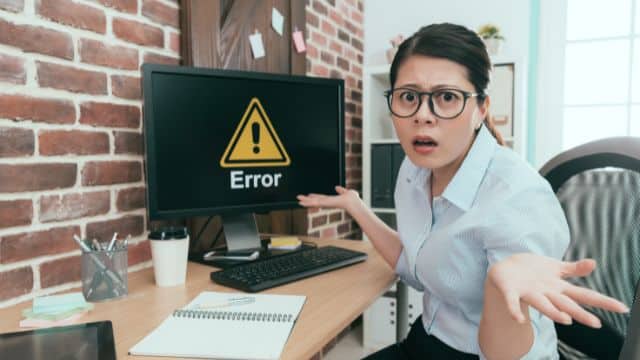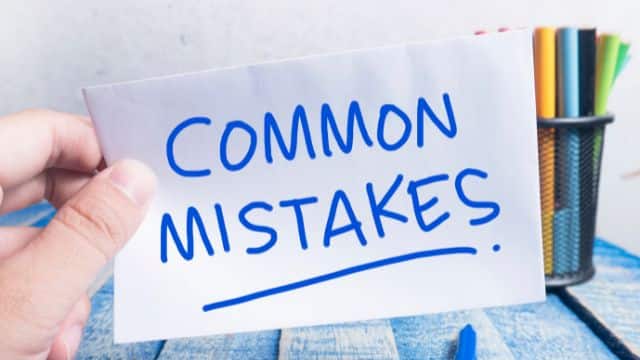Why Making Mistakes is a Superpower: Learning from Failure and Growing
Mistakes are often seen as setbacks or errors in judgment, behavior, or thought. We all make them, but the way we handle mistakes plays a crucial role in our personal and professional growth. Mistakes don’t define us, but our responses to them do. Whether it’s a wrong decision, a failed exam, or an unsuccessful business venture, mistakes are a natural part of life. They can become powerful stepping stones toward success if we learn from them.
Table of Contents
The Role of Mistakes in Growth
Mistakes happen for various reasons: lack of clarity, distractions, emotions, or simple human error. However, the beauty of mistakes lies in their potential for transformation. As Hirav Shah, a renowned business enhancement expert, opines, “Life is not a bed of roses, but thorns in between make you stronger and better.” This is especially true in a student’s life, where mistakes are often equated with failure, vanity, and incapability. But failure isn’t permanent unless you give up. It’s a critical part of the learning process.
In fact, some of the greatest successes have been built on the foundation of mistakes and failures. Thomas Edison, who famously failed over 10,000 times before inventing the light bulb, responded to his assistant’s comment, saying, “I haven’t failed. I’ve found 10,000 ways that won’t work!”
Mistakes aren’t final—they are learning opportunities. When we face failure, we gain insight into what didn’t work, and we can adapt and try again.
Why Making Mistakes is a Superpower
Mistakes provide us with the golden opportunity to analyze, rectify, and improve. People who’ve experienced failure have a better understanding of life’s challenges. They know how to bounce back, learn, and adapt. On the other hand, people who have never faced setbacks may struggle to cope when faced with adversity.
Take a moment to think about Ratan Tata, one of India’s most successful businessmen. He famously said, “I don’t believe in making the right decisions. I take decisions and then make them right.” This mindset illustrates how mistakes, rather than being setbacks, can serve as the building blocks of success. Learning from failure often teaches us more than success ever could.
How to Make Mistakes Work for You
Here’s how to shift your perspective on failure and make mistakes work in your favor:
- Take Risks: Every great achievement is born from taking risks. Don’t be afraid to try something new, even if it’s outside of your comfort zone. Mistakes are a natural outcome of stepping into the unknown.
- Be Open to Failure: Fear of failure can paralyze us and prevent us from trying new things. If you’re afraid to fail, you’ll never grow. Embrace failure as part of the process of self-improvement.
- Analyze Mistakes: Failure forces us to reflect. Whether it’s a failed exam, an unsuccessful project, or a wrong decision, analyzing what went wrong allows you to avoid repeating the same mistakes in the future.
- Learn from Mistakes: Mistakes give us lessons that success often does not. The key is to recognize what the failure can teach us and how to apply those lessons going forward.
- Don’t Give Up: Success isn’t about never failing—it’s about bouncing back from each failure with greater resilience.
Case Studies: Lessons Learned from Mistakes
- Richard Hadlee – The Fast Bowler’s Success Through FailureRichard Hadlee, one of the most intelligent fast bowlers in the history of cricket, didn’t become successful by avoiding mistakes. He learned from each mistake and failure, improving his technique and strategy over time. Hadlee didn’t have a perfect career path, but his perseverance and ability to analyze his mistakes propelled him to greatness.
- The Story of Starbucks:Howard Schultz, the CEO of Starbucks, was told multiple times that his idea for Starbucks wouldn’t work. Initially, investors and coffee shop owners didn’t believe in Schultz’s vision for a coffeehouse chain in the U.S. Despite repeated rejections and setbacks, Schultz persisted. Today, Starbucks is one of the most successful global coffee brands.
- Case Study: Analyzing a Failed Business VentureLet’s say you invest in a small startup. After a year, it’s clear that the business is failing. Rather than seeing this as a total loss, take the time to analyze the reasons behind the failure. Was it poor marketing? Unclear business strategy? Bad timing? By addressing these factors, you can turn the failure into a valuable lesson for future ventures.Calculations: Suppose you invested $10,000 in the business and after a year, the business only generated $3,000 in revenue. This results in a net loss of $7,000. However, the insights you gain from understanding what went wrong—whether it’s poor customer research or mismanagement—could save you from making similar mistakes in future business endeavors, ultimately leading to greater success.
The Power of Analyzing Mistakes
To truly turn mistakes into superpowers, it’s important to analyze them deeply. Instead of focusing on the emotional aspects of failure (frustration, regret, etc.), take a step back and ask:
- What went wrong?
- Why did it happen?
- What can I do differently next time?
These reflective questions allow you to grow from your experiences, improve your decision-making skills, and avoid repeating the same mistakes.
Overcoming the Fear of Failure: The Three-Step Process to Embrace Mistakes
Business Transformation Expert Hirav Shah suggests a simple three-step process to deal with mistakes more efficiently:
- Acknowledge the Mistake: Don’t ignore it or make excuses. Accept that something went wrong.
- Analyze the Factors: Look at what led to the mistake. Was it a wrong decision, poor planning, or external circumstances? Understand the root cause.
- Learn and Move Forward: Apply the lessons learned and move forward with better knowledge and more confidence.
Frequently Asked Questions (FAQs)
1. Is making mistakes a superpower or a super failure?
- Making mistakes is indeed a superpower! Mistakes offer opportunities for growth, learning, and improvement. Embracing mistakes as part of the journey can help you develop resilience, intelligence, and wisdom.
2. What is the most powerful failure quote?
- “Failure is not the opposite of success, it’s part of success.” – Arianna Huffington. Failure teaches us lessons that success can never provide. It’s essential to view failure as a vital component of growth.
3. Why is making mistakes important?
- Mistakes compel us to explore alternatives. When we fail, we are forced to step back and rethink our approach, often leading to better, more creative solutions.
Final Thoughts: It’s Not How We Make Mistakes, But How We Deal With Them
Mistakes are an inevitable part of life. They don’t define us, but how we handle them does. It’s our ability to learn, grow, and persevere through failures that shape us. The greatest achievers in history have faced numerous setbacks, but their success lies not in avoiding failure, but in how they handled it. Whether you’re in school, starting a new business, or working toward a personal goal, remember that making mistakes is not a sign of weakness—it’s a sign of progress.
So, take risks, make mistakes, and enjoy the journey. The lessons you learn along the way will help you build the foundation for a brighter, more successful future.


















